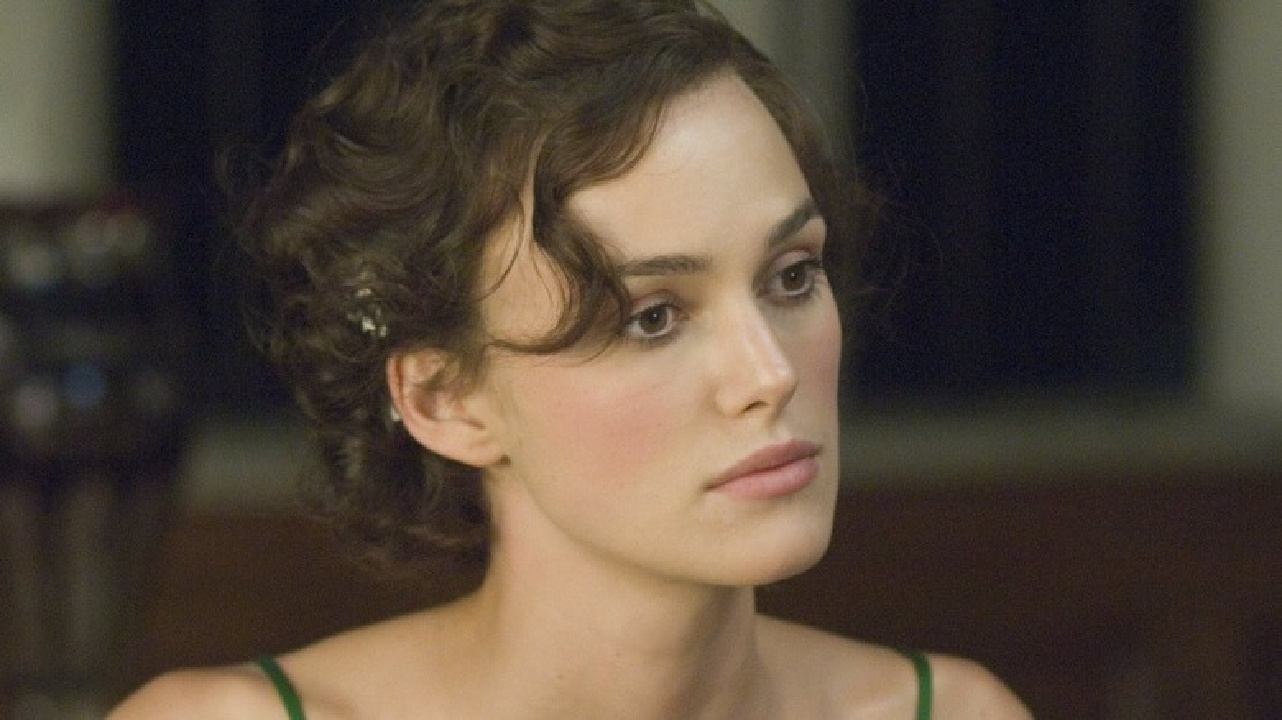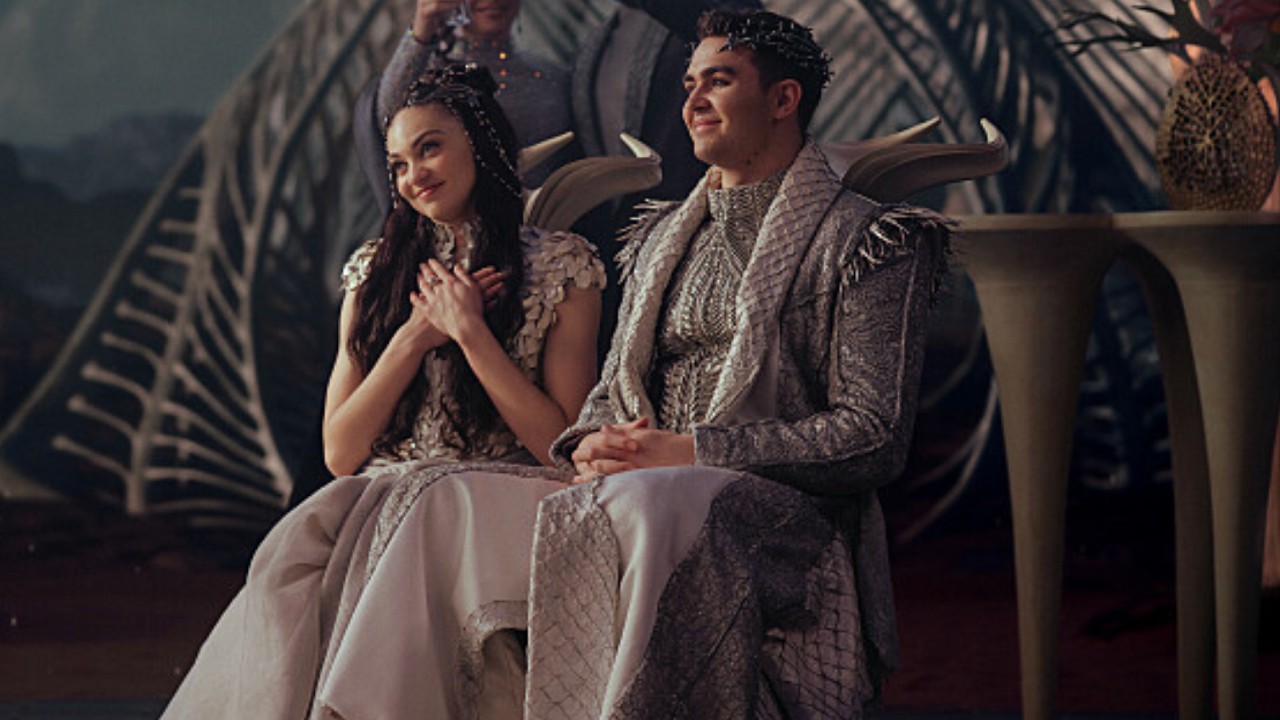Interview: Keira Knightley

Your Daily Blend of Entertainment News
You are now subscribed
Your newsletter sign-up was successful
She’s ridden the high seas for her last few outings on-screen, but for Atonement Knightley more in the form of last year’s Pride and Prejudice: not only has she reunited with her director from that film, Joe Wright, but she’s taking on yet another beloved period novel. Playing Cecilia Tallis, a young, rich woman in love with the son of her maid (James McAvoy), Knightley goes through the flush of first love and the horrors of World War II before all is said and done in this surprisingly twisty movie. She swears she doesn’t try to only do period pieces—she tries to do parts with good female roles, and those happen to be the movies that have them. She also talks about some projects she has coming up, but fair warning—none of them will involve a pirate ship.
Did you do research to get into this glamorous period? Did you study Bette Davis.
I did. It wasn’t Bette Davis though—well, it’s always a bit of Bette Davis. It was Greta Garbo quite a lot, with the smoking thing. Marlene Dietrich, and Katharine Hepburn, I always go back to Katharine Hepburn. I love that jerky quality that she’s got. The main inspiration for this was Celia Johnson from Brief Encounter, which I watched on a loop for about two months. I actually would be very happy to watch it on a loop forever. As a cast we all watched a lot of the David Lean, Noel Coward collaborations—In Which We Serve and then Brief Encounter. We watched a lot of news footage from that time as well. Again, the accent is such a specific thing, and it’s completely lost to my generation. It’s that British, 1940s stiff upper lip. It’s the height of the stiff upper lip, really. We all wanted to watch it together so that everyone was on the same page. It wouldn’t have worked if one person hadn’t done it. We did a lot of research into the accent and finding exactly what we wanted and what part of it we didn’t.
Can you talk about the chemistry between you and James? He had his comments, let’s hear yours.
Well, I know what his comments are. I agree with him. I should imagine that he said something along the lines of ‘It’s our job.’ And it is. It was a fantastic script, a great director. We really got on—I think he is a sensational actor, and working with him was really, really exciting. I think as far as chemistry goes, you can have the best actors together, and in fact they can be in love with each other, and for some reason you won’t have chemistry on-screen. I don’t think anyone ever knows what makes that final bit of chemistry work. Obviously it helped that we got on, obviously the script’s fantastic, so maybe that’s the answer.
Did it help working with Joe again?
Yeah. I love working with Joe. I loved him the moment I met him. I think chemistry between actors is very rare on-screen, I think chemistry between actors and directors is even more rare. And we have really good creative chemistry for some reason, I don’t know why. We speak the same language. I think very often acting is all about emotions. I think everybody intrinsically has the same emotions but we describe them differently. Sometimes on set that can feel literally like a language barrier. With Joe, we describe emotions the same. We kind of had our own language, and I understood what he wanted, which is always helpful.
Your Daily Blend of Entertainment News
What kind of movies do you enjoy?
Of this year? I just saw Michael Clayton, which I thought was wonderful. I though Tilda Swinton in that was unbelievable. I mean, all the performances were great. I loved Into the Wild. I thought that was a very inspirational film, and actually the director of photography for that who also did A Guide to Recognizing Your Saints, is one of my favorites at the moment. That film I thought was wonderful. And Marion Cotillard in La Vie En Rose. I think that’s one of the most extraordinary performances I’ve ever seen.
Was it a challenge, playing a cold character like Cecilia?
I never saw her like that—I mean, yes she is, but I never saw her like that. I always completely understood it. I think that’s why I fell in love with her from the moment I read the script, because I saw her so clearly. I think that very often in film you have characters that are black and white, and what’s fascinating about her is she’s probably a very good person, but she’s behaving like a bitch. I think we all do. I think you very rarely see that. I just love the different layers of her.
What was the hardest scene to film?
I don’t know. I don’t know if hard is the right word. I think every film is always challenging, and should be. But because of this three weeks’ rehearsal we had, we were all so prepared. I wouldn’t say that anything that stuck out in my mind as being particularly difficult. The one that I loved doing, found challenging and really exciting, was the Swallows tea shop, that was actually one of my favorites when I read the script. What they both want to do is pour out into this melodramatic—they want to say everything, but they can’t. So it was a really interesting process of trying to think about all the things that wanted to be bursting out and then repress that, which was actually what we were doing in the whole of the film, because it’s all about what’s not said as opposed to what is said. But in that one it was fabulous to keep that balance between being too melodramatic and too overemotional and keeping it in check.
How was working with Saiorsie Ronan?
Yeah, she’s amazing. She’s 12 and she’s got this thick Irish accent, and she comes out and she’s got this pitch perfect 1940’s British accent. I think what’s incredible with Saiorsie—that’s not taught. That’s not taught. So where does that talent come from? It is extraordinary. People keep on saying ‘What advice are you giving her?’ I would never dream of giving Saiorsie Ronan advice. I’ll take advice from her.
You seem to like things from historical periods. Is there some fascination with history?
I’ve always liked history. I’ve always been fascinated by it. It’s not particularly that I’m going I want to do things that are historical. It’s simply been the stories that have interested me. You know if I find a contemporary story that interests me I’ll certainly do that as well. There are always much fewer good parts for actresses than there are for actors. Most of them that I’ve read indeed have simply been period pieces as opposed to contemporary pieces.
You’ve played so many great female parts—how do you get such great roles?
I was very lucky with a lot of them, that they just happened to be the ones that I got. I was auditioning for lots of roles and they were the ones that they offered me. I think as a woman what I’m interested in is seeing interesting female roles onscreen. I’m not interested really in seeing women that are very much the secondary, token woman. which there always are, and that’s fair enough. But as far as being a cinemagoer I’m excited when I see female roles that have a bit of different layers to them, that can be something inspiring. I think that’s important.
Did you talk to Ian McEwan about your chacter at all?
Not before. He came on set a couple of times. He was very nice. At the London premiere he came up to me and said “It’s interesting, it works so well, but you played it so differently than I’d written it.” And I thought “No I didn’t, I played it exactly…” That’s what’s wonderful about the characters, is people have such different ways of seeing them. I obviously saw it differently than Ian McEwan saw it.
What are you working on now?
I’ve just finished one called The Duchess, which is based on part of the life of the Duchess of Devonshire, who was a political hostess in the 1780s. That’s with Ralph Fiennes and Charlotte Rampling. Before that I was working on a film that my mom’s written about Dylan Thomas and a group of friends that surround him and an act of violence that happens. That was with Cillian Murphy and Sienna Miller and Matthew Rhys.
Would you do another Pirates of the Caribbean movie?
I can’t imagine doing another one. That was an amazing experience, it really was, and totally extraordinary. But I think three for me is probably enough.
Staff Writer at CinemaBlend

